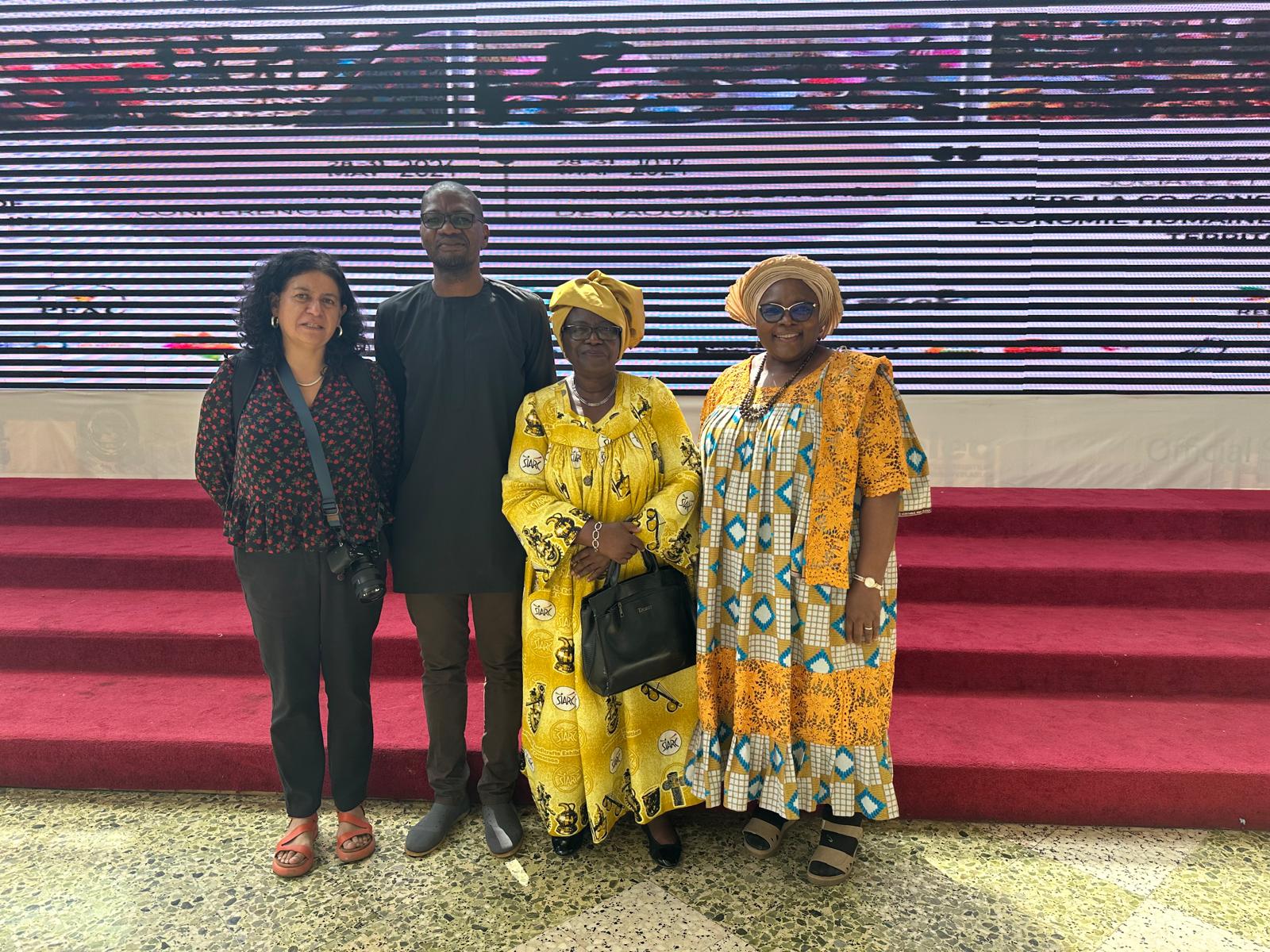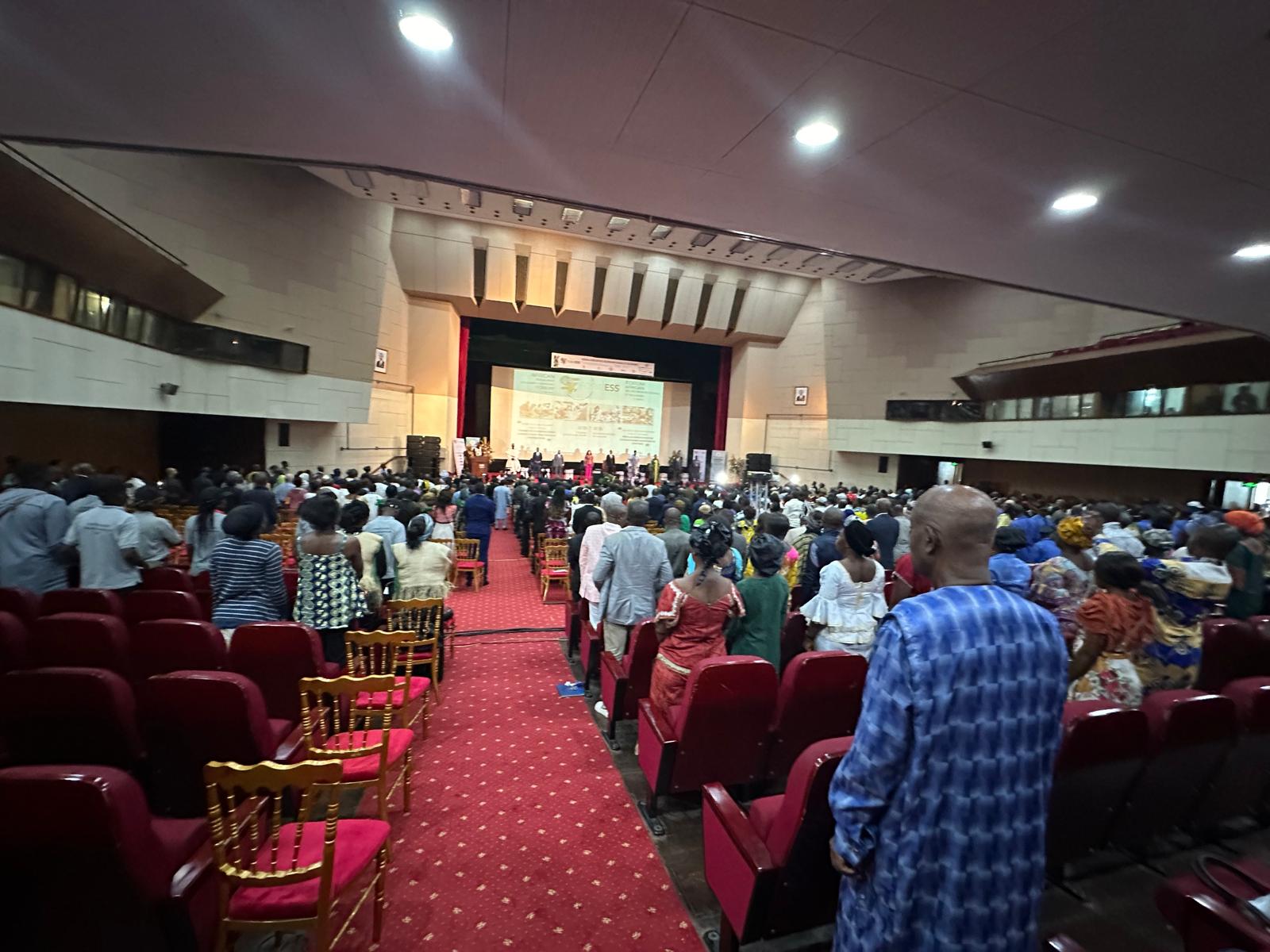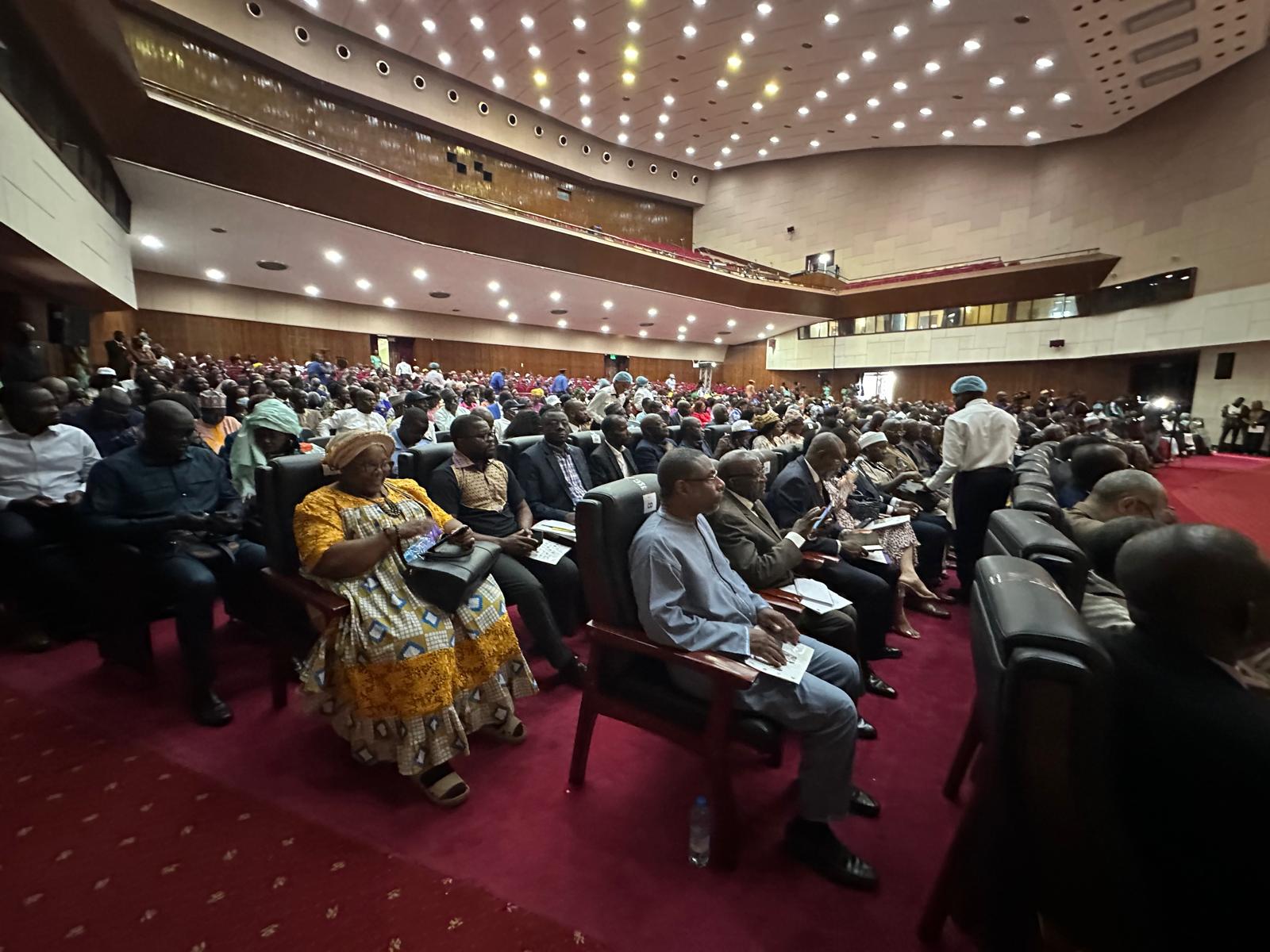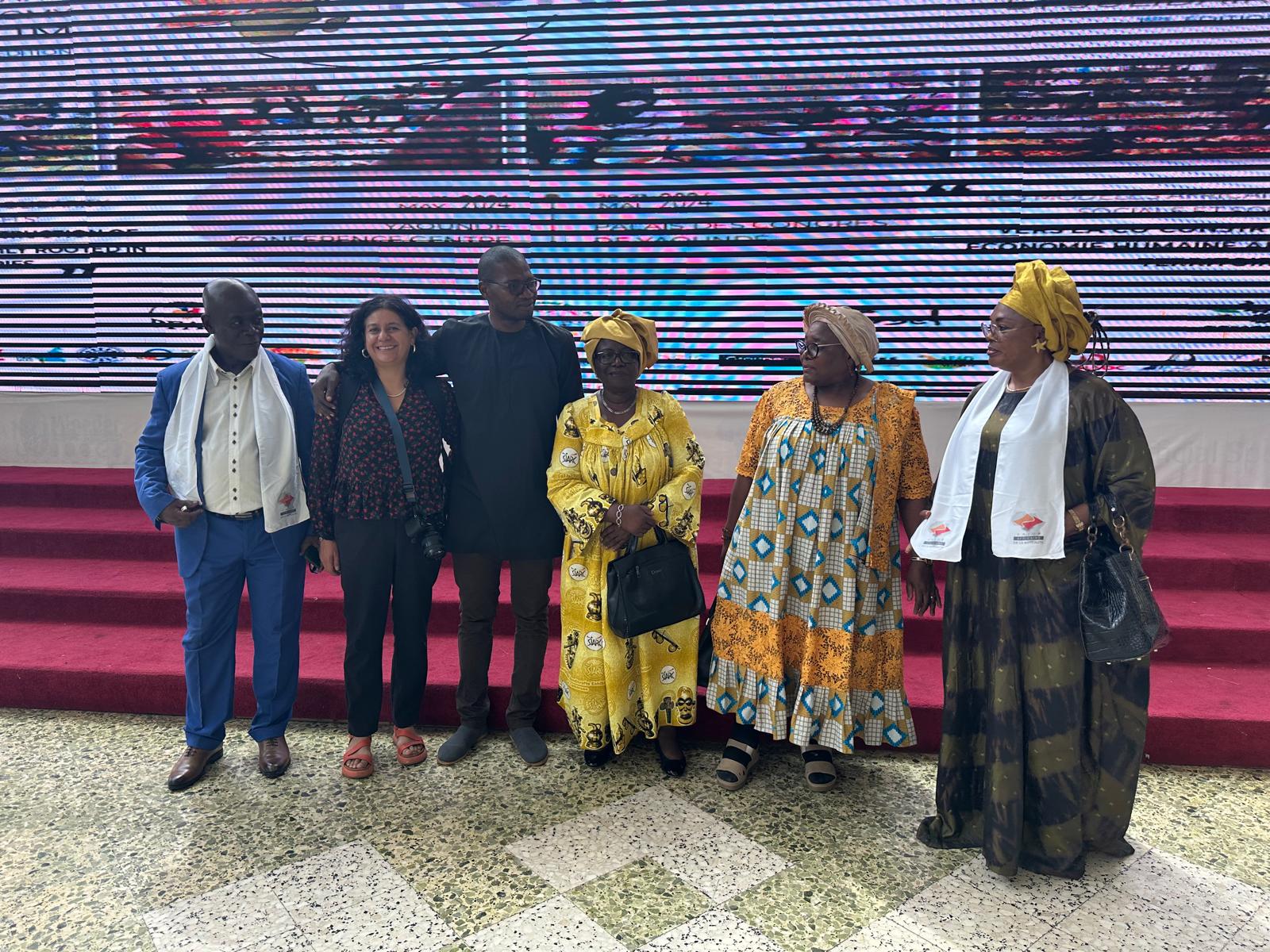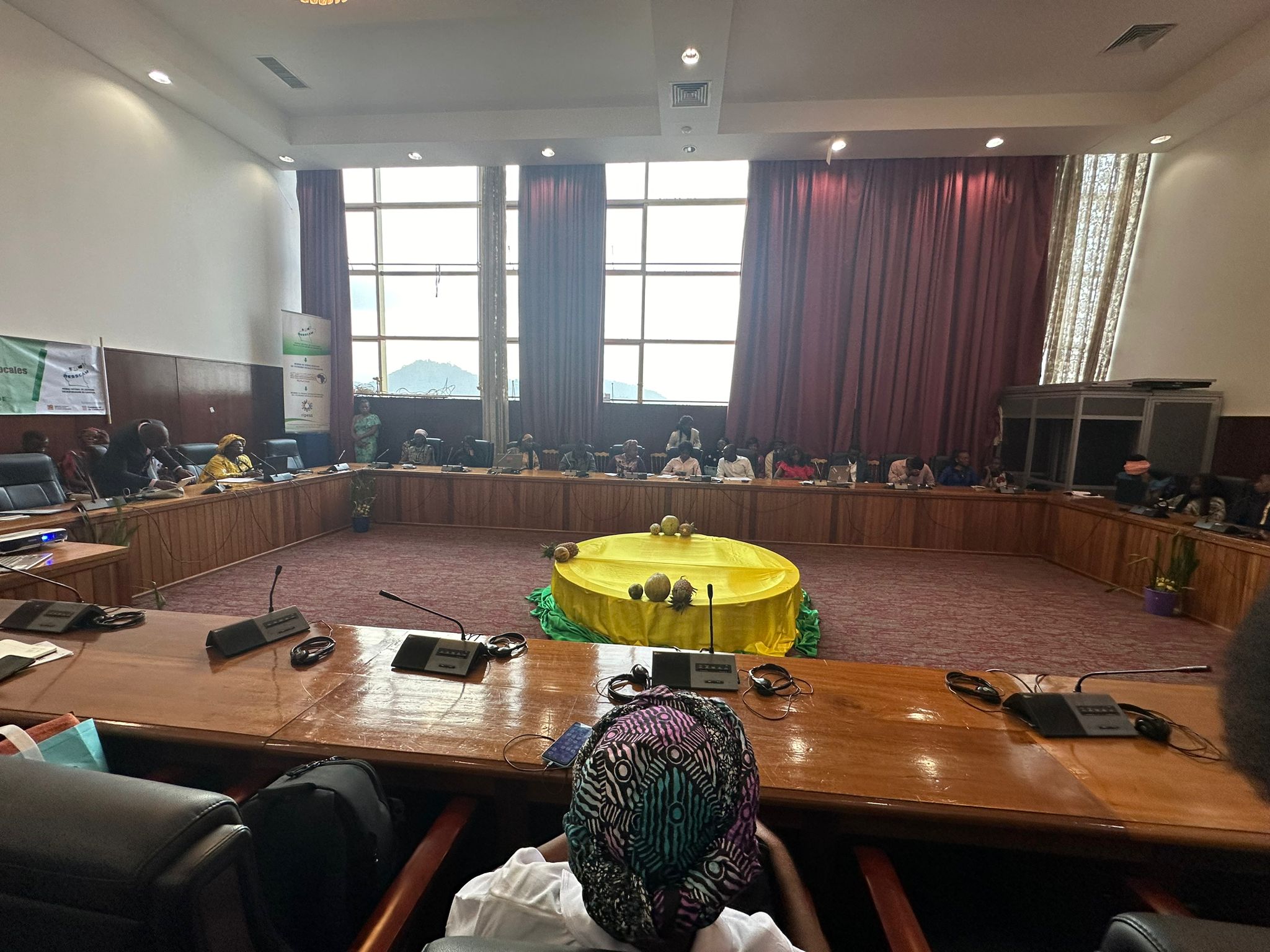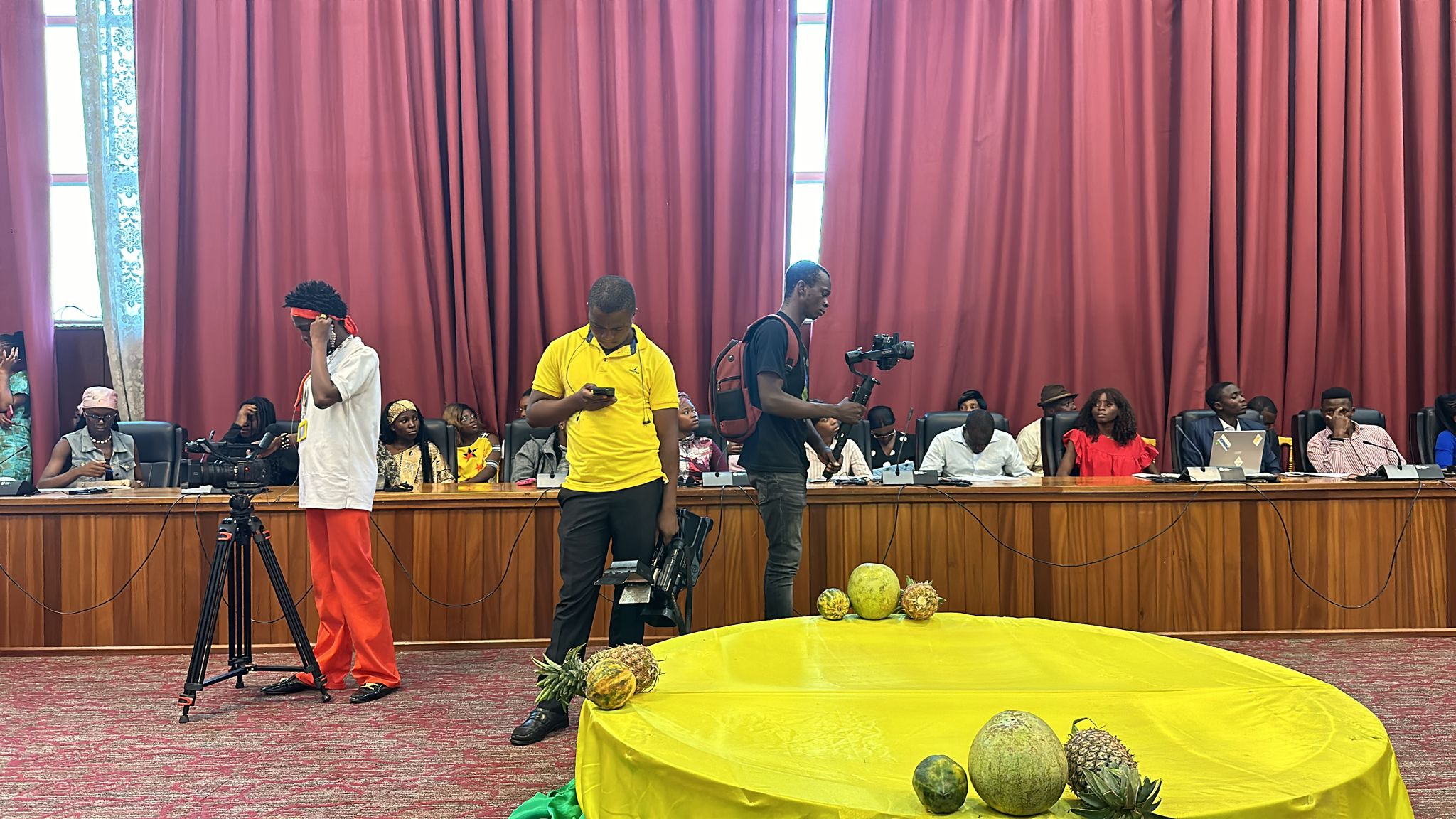The Social Solidarity Economy Network of Cameroon, RESSCAM created and active since 2013 and which signed a partnership agreement with the Ministry in charge of SSE (MINPMEESA) in October 2019; organised last 29 May a panel on ‘Social Solidarity Economy, Gender Equality and Promotion of Innovation’. This took place in the framework of the African Forum of SSE 2024 (FORA’ESS) in Yaoundé, Cameroon, which took place from 28 May to 1 June and brought together participants from 32 countries looking for moments of exchange, learning and coexistence.
During the opening ceremony, and thanks to the mediation of RIPESS Intercontinental, the Minister of Environment and Sustainable Development of Colombia, María Susana Muhamad González, and Mauricio Rodríguez, Director of the Solidarity Unit of the Government of Colombia sent their message of support to FORA’ESS. RIPESS LAC, the SSE network in Latin America and the Caribbean is working closely with the Colombian Government in the run-up to the COP16 on Biodiversity and ECOOVIDA, events that will take place in October 2024 in Cali, Colombia.
Here is the video with subtitles in French, English and Spanish – Click on Settings (bottom right bar) and choose the one you prefer: Message to FORA’ESS from the Colombian Government (youtube.com)
The panel organised by RESSCAM, which was facilitated by Pierrette Memong Memo, Coordinator of the Cameroonian network and Secretary General of the African Network of Social and Solidarity Economy (RAESS), member of the board of RIPESS Intercontinental, focused on the promotion of entrepreneurship and local industry, the SSE models that, according to Pierrette, we have in so many villages and localities at the local level: we want them to grow, develop and become real industries.
Video summary of the event (in French):
To learn more about these realities that Cameroon is trying to bring to a state of established industry, the biochemical and marketing company METCHUM TAYOU started the session by talking about the structuring of SSE actors in the fisheries sector in Cameroon. A case study, ‘Ndema La Sue’, ‘From fillet to plate’. The presentation shared at the event can be found here.
It was followed by Mr. Denis AWOH NDANG – Mayor of Fundong, Department of Boyo, North West Region of Cameroon and Vice-President of the Network of Mayors of Cameroon for the Social and Solidarity Economy (REMCESS), who presented the SSE project , resilience in a context of crisis: innovative project of a wood processing cooperative for the supply of electricity from wood in the North West of Cameroon.
Then, the craftswoman and president of the association ‘Artisan au Féminin’, Hélène MAPOKO, shared her experience of creating and running an innovative wood crafts centre for the integration of vulnerable and disadvantaged women and girls.
Then it was the turn of Cécile EBOBISSE, economist, gender development evaluator and SSE activist. The deputy coordinator of the National Network of Social and Solidarity Economy of Cameroon (RESSCAM) will continue with import substitution as an engine of growth for actors in the social and solidarity economy.
Finally, the representative of the United Nations Industrial Development Organisation concluded on the essential theme of equality between men and women in the framework of inclusive and sustainable industrial development of the social and solidarity economy.
These projects show the power that exists in the region to develop and increase both impact and continuity and growth within solidarity-based models. A medium/long-term perspective at the institutional level is necessary for the industry to reach high levels of performance and wider production, transformation and distribution chains that supply larger and larger areas and are sustainable over time. All this without forgetting decent work, the implementation of care systems and the attraction of women and young people, and respect for decent work, social protections and the integration into the formal economy of many workers who find themselves in the informal system, without their needs being met.
This workshop was irrefutable proof that women are the driving force of the SSE and of entrepreneurial and social innovation, and that RIPESS has been present since the beginning of this movement.
Some photos of the workshop and the opening ceremony this morning in the presence of several institutional representatives from Cameroon, Guinea Bissau, Ivory Coast, Togo, Congo, Gabon, Senegal and Colombia.
